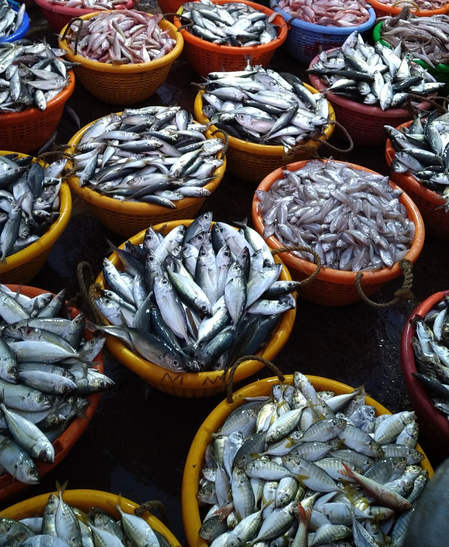
Chennai, April 14 (IANS) With the annual 61-day fishing ban set to come into effect from midnight on April 14, fish prices have skyrocketed at the Kasimedu fish market in Chennai.
Seer fish (vanjiram) is selling at Rs 1,000 per kg, red snapper (shankara) at Rs 600 per kg, and pomfret (vaaval) at Rs 650 per kg, reflecting high consumer demand.
The fishing ban, mandated under the Tamil Nadu Marine Fisheries Regulation Act, 1983, and enforced in accordance with the Centre’s Deep Sea Fishing Regulation Act, 2001, will remain in force until June 14, and applies to mechanised and trawl boats operating from Tiruvallur in the north to Kanyakumari in the south.
The primary objective is to facilitate the breeding of marine species and ensure the conservation of fish stocks.
However, traditional country boats and small-scale fishermen are permitted to operate within 5 nautical miles during the ban period.
There are an estimated 800 registered mechanised boats in the coastal districts of Chennai, Kancheepuram, and Chengalpattu. During the ban, these boats are required to remain docked.
The state government has announced financial assistance of Rs 8,000 for each fisherman affected by the moratorium, covering the entire 61-day period, while strict enforcement measures are in place under and violators who venture into the sea during the ban will face legal action.
Meanwhile, South Indian Fishermen’s Welfare Association President K. Bharathi raised concerns about the timing of the ban.
“In Tamil Nadu, the fishing ban is observed from mid-April to mid-June, which coincides with the summer season. But fish generally breed during the rainy season. On the western coast of India – from Kerala to Gujarat – the fishing ban starts in June, aligning with the monsoon, which is more suitable for breeding,” he told media persons.
Bharathi urged the state government to reconsider the timing of the ban and align it with the actual breeding period. He also called for an increase in the financial assistance provided to fishermen, citing inflation and rising costs of living.
“During this period, fishermen carry out maintenance work on their boats or temporarily migrate to other states for alternative employment. Given the current economic conditions, enhanced support from the state is essential,” he added.
–IANS
aal/vd



